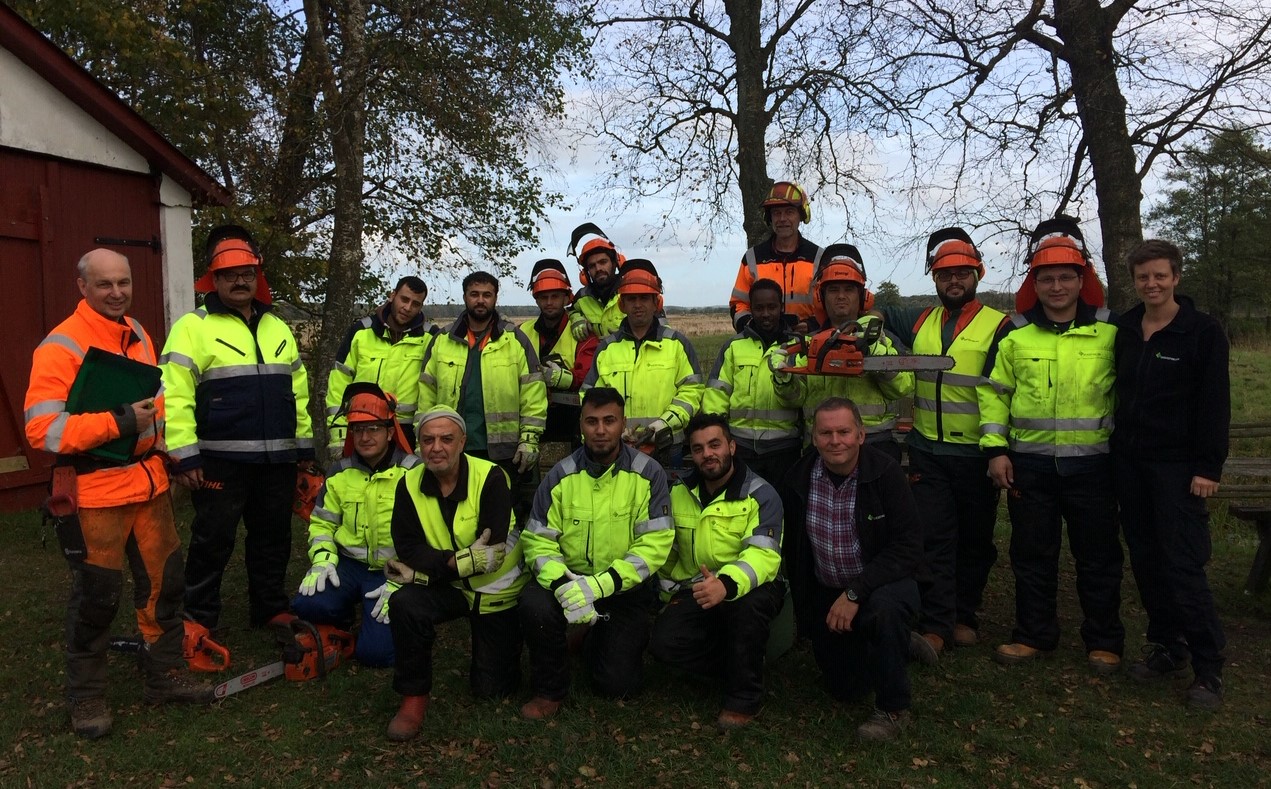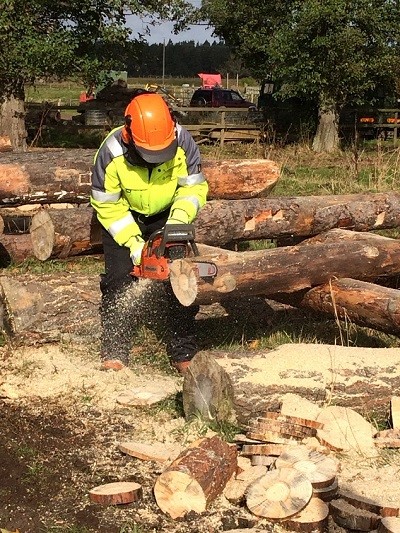Summary
This research aims to evaluate the use of conservation activities that are aiding cultural integration and improving the wellbeing of migrants and long term Swedish unemployed in Skåne, Sweden. These activities include building and maintaining walking paths, clearing out meadows, building staircases, fences and information boards, cutting down trees and bushes and many more. Mixed-methods research is used to conduct an evaluation of the Nature Integration Programme.
The research is led through a collaboration between the Swedish University of Agricultural Sciences and Forest Research, while the Nature Integration Programme itself is run by the Swedish Forestry Service (Skogsstyrelsen) in partnership with the Swedish Unemployment Service (Arbetsförmedlingen) and the County Administrative Board (Länsstyrelsen).

Research Objectives
The evaluation research aims to identify:
- What are the experiences of both migrants and long term Swedish unemployed from being involved in the programme?
- Are there any changes in participants’ self-reported general health, sleep quality, self-efficacy, physical activity levels or nature connectedness?
- Is there evidence of integration across different cultures?
- How have the different partner organisations involved in the programme collaborated?
Findings and recommendations
The research is still ongoing. Preliminary analysis illustrates that while the work at the nature conservation sites is labour-intensive and physically demanding, it is perceived by trainees as meaningful work. Migrants are introducing their families to the places they have been working, showing pride in their nature conservation achievements. As a result, the programme is aiding the integration of different cultures, as migrants get to know the countryside beyond the city and Swedes learn about migrants’ lives and their native countries. Both the migrants and long term Swedish unemployed reported high levels of nature connectedness throughout the programme.
The partnership between the three organisations is a long-term collaboration and generates value at different scales and dimensions. All three organisations emphasise the importance of the alliance as it enables each organisation to work towards its own objectives and goals.
Latest Update

The researchers have written a book chapter for a new book still to be published on Forests for Public Health.
Pálsdóttir, A. O’Brien, L. Dolling, A. 2020. Nature based vocational training for nature conservation and human wellbeing in Skåne, Sweden.
Our Involvement
Forest Research is collaborating closely with Dr. Anna María Pálsdóttir and Dr. Ann Dolling at the Swedish University of Agricultural Sciences on the research. We are undertaking the statistical analysis of the quantitative data and are involved with the qualitative analysis and writing up of the research.
Funding & Partners
-
 Research in partnership with the Swedish University of Agricultural Sciences
Research in partnership with the Swedish University of Agricultural Sciences
